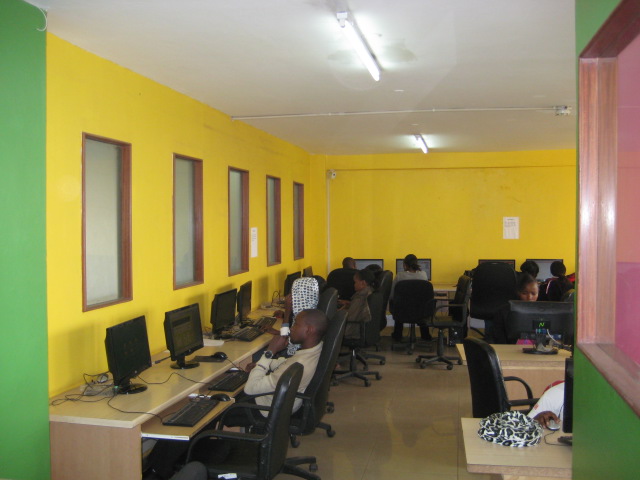Special Series (Part 5): BPO for the BoP – The Path Towards Sustainability and Scale: Lessons on Expansion from a Mature Impact Sourcing Provider
By Sateen Sheth
Editor’s note: This post is the fifth in a six-part series examining the emerging Impact Sourcing space through work performed by the William Davidson Institute (WDI) and funded by the Rockefeller Foundation.
In part four of our series on Impact Sourcing (to learn more about the fundamentals behind Impact Sourcing, please read part one and part two), we shared some findings from WDI’s visit to Daproim, a mid-sized Impact Sourcing Service Provider (ISSP) based in Nairobi, Kenya. Daproim recently launched a program that provides virtual, remote location business process outsourcing (BPO) employment to disadvantaged university students pursuing their degrees. The program has allowed hundreds of students to gain valuable formal sector work experience while also earning income. However, there have been challenges to securing a steady supply of work to meet the ever-growing demands of youth workers seeking employment.
As we continue to highlight inventive ISSPs, this post features Digital Divide Data (DDD), an experienced ISSP with a focus on continuing to scale. DDD is an internationally acclaimed social enterprise that employs more than 1,100 people and operates in several countries including Cambodia, Laos, and most recently, Kenya. DDD, during its decade of operation, has developed and implemented both a compelling business value proposition and well-defined social impact model. DDD recruits, trains, and employs youth to perform BPO work while also providing them financial support for higher education. Employees work and attend university concurrently and once they graduate, they move on to higher paying jobs in the formal economy.
 DDD’s value proposition to clients is two-fold. The company focuses on maintaining high standards and quality for BPO work, including competitive pricing and meeting required turn-around times. It also provides added social value by creating job opportunities in low employment areas and building skills through training and education. The proposition has been persuasive to many as the organization works with a diverse and large array of clients. This includes local companies, U.S. academic institutions such as Columbia and Brown University, and large multinational corporations such as Ingram. According to its 2012 annual report, 72 percent of DDD’s total revenue of $5.2 million came from business revenue, and earned income increased 47 percent from the previous year. This growth represents the largest in the organization’s history. The number of DDD’s employees also has nearly doubled since 2010.
DDD’s value proposition to clients is two-fold. The company focuses on maintaining high standards and quality for BPO work, including competitive pricing and meeting required turn-around times. It also provides added social value by creating job opportunities in low employment areas and building skills through training and education. The proposition has been persuasive to many as the organization works with a diverse and large array of clients. This includes local companies, U.S. academic institutions such as Columbia and Brown University, and large multinational corporations such as Ingram. According to its 2012 annual report, 72 percent of DDD’s total revenue of $5.2 million came from business revenue, and earned income increased 47 percent from the previous year. This growth represents the largest in the organization’s history. The number of DDD’s employees also has nearly doubled since 2010.
(Above: DDD office in Nairobi – photo courtesy of Sateen Sheth)
Unlike newer and smaller ISSPs without the resources and expertise to do so, DDD also has made an active attempt to quantify the social impact of its work. The organization worked with WDI to develop a process and survey tool to measure its impact on employees and program alumni. DDD now has a third-party organization conduct yearly surveys on new trainees, program participants at DDD, and graduates of DDD’s program in order to track long-term impacts. This data is analyzed in comparison with a control group drawn from national census data. Nearly 100 percent of DDD employees graduate with a college degree and most have secured higher-paying jobs in the formal economy post-graduation that pay on average four times what local high school graduates make. DDD projects this lifetime increase in salary to be approximately $60,000 USD per graduate.
With an eye towards scale and replicating its model in new locations, DDD launched operations in Kenya in 2012 in partnership with the Rockefeller Foundation. Kenya was chosen with the specific intent to develop a local market where nearly all the demand for services would come from clients in East Africa.
“We saw enormous opportunity in the talent available in Kenya, as well as a growing regional market for DDD’s content BPO services in East Africa,” says Michael Chertok, DDD’s chief development officer.
DDD Kenya, under the direction of managing director Amolo Ng’weno, has been off to a fast start. The Nairobi-based office already employs 250 people and was recently recognized as the most innovative BPO company at the Connected Kenya Summit. DDD Kenya offers a range of BPO services such as e-book conversion, records management, newspaper digitization, and data entry and conversion. The organization has developed a specific niche around online advertising; DDD hosts the only six certified Google AdWords advertisers in Kenya.

DDD has gained valuable insight from starting operations in a new region. For example, the BoP workers hired from urban slums in Nairobi tend to have higher English and technology skills than their counterparts from rural parts of Cambodia. This has allowed DDD to better meet client needs by shifting more complex tasks, such as managing online advertising campaigns, to the Nairobi office. Both infrastructure and salary costs, however, have been more expensive in an urban center such as Nairobi and the enterprise has had to adjust accordingly.
DDD has faced some challenges developing a local market for services in East Africa. DDD’s goal was to have nearly 100 percent of sales come from the local market. So far, that number has reached 60 percent. Sales cycles for new business have been longer than anticipated and DDD has had to take part in significant market creation activities needed to inform and develop a rather immature local market. There have also been some difficulties securing government contracts due to the copious amount of bureaucracy. DDD has been looking to increase its workload by potentially partnering with, and sub-contracting from, larger BPO organizations. However, it has not yet been able to develop a viable model that would make it mutually valuable and profitable for both parties.
Despite these challenges, Chertok says, “We’ve been thrilled with DDD’s successful entry into the Kenyan market, as well as with the overall strength and visibility of the BPO sector in the country. Collectively, our growth and increased maturity provides credibility for all the firms working in the industry there.”
As DDD moves toward the future, the organization is focused on improving its business revenues and profit margins to support its educational and non-profit activities. DDD’s goal is to become self-sustaining in both Asia and Africa by 2016 in a manner where business revenue can fund all organizational costs. By removing itself from dependence on external charitable support, DDD hopes to prove the long-term sustainability of both the business and social impact aspects of Impact Sourcing.
- Categories
- Education, Technology
